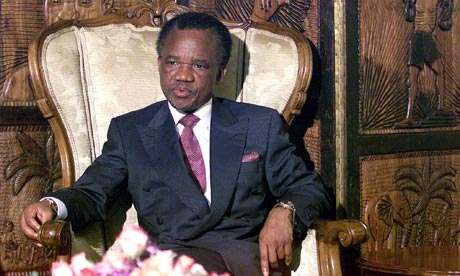Poverty, hope and the burden of motherhood

Elliot Ziwira
Zambian writer Binwell Sinyangwe, in “A Cowrie of Hope” (2000), explores how poverty imprisons the individual and robs him/her of any sense of dignity; reducing the impoverished to a threadbare see-through garment that anyone can toss around.
Using realistic traits of modernism, he examines the sordid and mundane straits that the downtrodden – the scum of the Earth – face in their daily toils in a world insensitive to their plight.
Playing his role as the voice of the voiceless, he raps the voyeur inhering in man that draws excitement from trauma and suffering.
His creation of symbolic elements, images and metaphors through setting and characterisation gives the story a unique flair which hoists the reader on a whirlwind voyage of suspense and intrigue.
Suffering and the agony of motherhood highlighted in this story of hope in the face of hopelessness cannot be told in any other way.
“A Cowrie of Hope” explores a widow’s struggles in raising her daughter single-handedly.
She believes that the child, if given the opportunity, will not only free them from poverty, but will also give her a chance at social and financial freedom.
However, a plethora of setbacks seems determined to put a damper on her dreams, and it is this that tests her resilience as a hen eagle in a jungle where eaglets are a delicacy.
It is the story of Belita Bowa, or Nasula (mother of Sula) and her daughter, Sula, which means “let things be”.
Set in the Zambia of the ‘90s, the novel tackles issues of transition in African countries as governments change.
Fredrick Chiluba has just taken over from Kenneth Kaunda and his revolutionary party and “the days were truly hard”.
A combination of new policies and the vagaries of nature compound the suffering of the ordinary man.
Sinyangwe writes: “These were the nineties. The late nineties. They were lean years. They were the years of each person for himself and hope only under the shadow of the gods. No one wanted to give because no one had anything to spare …The years of the rule of money. The years of havelessness, bad rains and the new disease. The harsh years of madness and evil!”
It is into such a world that Nasula, who is described as “poverty itself”, is thrown.
Using flashbacks, the writer takes the reader to the happier years when Nasula’s husband – Winelo – lived, and juxtaposes it with the present woes.
Though Winelo is not a saint, as he sometimes abuses his wife emotionally, and later on dies at the hands of the police because of his wayward nature, he provides for his family.
Upon his death the house he bought for his family in Lusaka is sold, and the money in his bank account is pounced on by his family, reducing his widow and daugther to penury.
Sinyangwe carefully tackles inheritance issues in the absence of knowledge of the law.
Nasula is told that if she wants to benefit, she has to become Isaki Chiswebe’s fourth wife and join the family at the farm. Her refusal to play ball confines her a poverty that “she wore … like her own skin”.
Having relocated to Swelini, her home area, Nasula struggles on in her determination to send her daughter to school.
“She understood the unfairness of the life of a woman and craved for emancipation, freedom and independence in the life of her daughter. Emancipation, freedom and independence from men.”
Dreams are what the disadvantaged feed on. Hence Nasula trudges on as she sees a silver lining in the dark clouds yonder, for in Sula there is a cowrie of hope.
After passing her primary school examinations with flying colours, she is offered a place at a boarding, secondary school, St Theresa Girls in Kasama.
A lot of money is required and Nasula, “with not even one coin, anywhere in the world”, is depressed but stirrings of motherhood drive her on.
She swallows her pride, after nine years, and heads for Chiswebe Farm to talk to Isaki, her brother-in-law, and his father about the child’s predicament.
However, the poverty that greets her at the compound; a stark contrast of what it once was thaws her heart. Poetic justice has already passed sentence.
“She had come to the hearth of the fallen and dying, where, clearly nothing existed to fight or fight for.”
The Chiswebe family has lost everything, including farm equipment and household furniture, to creditors as they have borrowed against their crops which unfortunately could not stand nature’s armoury, and “the new people in government” could not take to such flimsy excuses.
Isaki, seriously sick at her arrival, succumbs to “the disease that had afflicted (him) and his three wives…the new unmentionable disease of the world that came of the taste of flesh, the one that makes you thin before taking you”.
Needless to say, this is in reference to the then emergent HIV and Aids pandemic.
Returning home empty handed, Nasula decides to take yet another gamble for her daughter. She decides against common sense to borrow seed and fertiliser from the shrewd Pupila, hoping to pay him off and sell the excess produce at a profit.
But she only manages to pay Pupila his dues and returns to square one.
Sinyangwe bemoans the capitalistic and cold-hearted nature of the new government, as Nasula nostalgically yearns: “They were lucky, those who went to school in the sixties, seventies and eighties, when education was not paid for and everything needed was provided free.”
Putting all her faith in the gods of her ancestors, Nasula waits for divine intervention; which comes in the form of her long-forgotten friend, Nalukwi.
They go to Lusaka to sell their one bag of beans, which they hope will fetch K120 000.
She is inspired by one female vendor who says: “The mother is the one who feels the pain of a new life coming into the world. She must fight on, alone, for something that her children can swallow.”
As fate would have it, Nasula is conned out of her bag of beans by a well-known crook, Gode Silavwe, who enjoys immunity from the law because he bribes the police.
The writer laments the infirmity of poverty through Nalukwi who in bewilderment asks: “What bad luck is this, God of mercy? Are we not going to be allowed any progress, even with the little in our hands, from our own sweat? When we can’t borrow or beg, like they who are rich?”
But the poor can also converge on their abode of suffering and help each other in times of need as enshrined in the man from Solwezi who gives Nasula K20 000 for bus fare back home, who says: “Friends, we are strangers to each other, but we are children of the same creator and victims of the same fate here on earth … I am a poor man myself. I need every coin I come across … I decided to give you this, mother of our children”.
Driven on by the resilience that is a preserve of mothers, Nasula decides to hunt down Gode and bring him to book.
After a week of street living, she finds him, but nobody comes to her aid as those around seem to enjoy the spectacle as she demands justice.
Undeterred, Nasula seeks “the boss of everyone. The one at the topmost” at the police station, and on finding him cries, “Help me; I am a poor woman of no means and with no one to turn to. My daughter will not go to school if you don’t help me.”
She realises that good men still tread this Earth when the inspector responsible for Gode’s godfather status, is summoned by his boss and told to go and bring him to the station within the hour – which he promptly does.
Gode admits his folly and is ordered to pay Nasula K150 000 for her beans and her troubles and the inspector is suspended pending dismissal.
The top cop tells the inspector: “You have troubled her a lot. Regard the way she is looking. Does it please you to see a mother looking like this?”










Comments